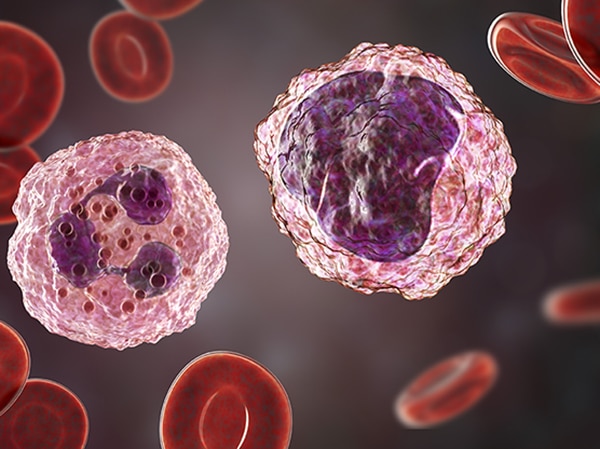A Cord Blood-based Cell Therapy for Patients With Blood Cancers
This is the first modified, donor cord blood–based stem cell therapy approved to reduce time to hematopoietic recovery and infection
The U.S. Food and Drug Administration (FDA) approved omidubicel-onlv (Omisirge) for adult and pediatric patients 12 years and older with blood cancers who are scheduled for myeloablative conditioning and subsequent umbilical cord blood transplantation.
Many patients with blood cancers undergo stem cell transplantation as a treatment to replace cancerous blood cells with stem cells that will mature into healthy blood cells. Before receiving the transplant, patients undergo myeloablative conditioning, usually in the form of high-dose chemotherapy or radiation, to kill cancer cells and make room in the bone marrow for the transplanted stem cells. Umbilical cord blood is an important source of donor-derived hematopoietic stem cells for transplantation. However, compared with other sources, transplanted umbilical cord blood may be associated with a higher risk of life-threatening infections due to delayed recovery of blood cells and immunity.

Omidubicel-onlv is a modified umbilical cord blood-based stem cell therapy in which the cord blood-derived stem cells are treated with nicotinamide, a form of vitamin B3, to expand the number of progenitor cells. The approval is based on results from Study P0501, an open-label, multicenter, randomized phase III trial in which 125 patients with hematologic malignancies received either omidubicel-onlv or standard unmanipulated cord blood (UCB) transplantation following myeloablative conditioning.
The main efficacy outcomes were time to neutrophil recovery and the incidence of moderate or severe bacterial or severe fungal infections in the first 100 days following transplantation. Neutrophils are a type of bone marrow-derived white blood cells that help the body fight infection.
The median time to neutrophil recovery was 12 days for patients who received omidubicel-onlv and 22 days for those in the UCB arm, with 87% and 83% of patients experiencing neutrophil recovery in the omidubicel-onlv arm and in the UCB arm, respectively. Patients who received omidubicel-onlv had a lower incidence of moderate or severe bacterial infection or severe fungal infection than those who underwent standard UCB transplantation (39% and 60%, respectively.)
The approval of omidubicel-onlv includes a boxed warning for fatal or life-threatening infusion reactions, graft versus host disease, engraftment syndrome, and graft failure.
The FDA rendered its decision on April 17, 2023.
